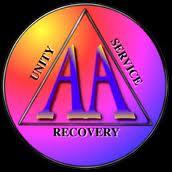Addiction and Relapse
Authored by Rebecca Fischer

Addiction Relapse Is Not Failure
Addiction and Relapse impacts people on a physical, mental, and spiritual level, and it’s often misunderstood. For example, when people in addiction recovery experience a relapse, they may believe that they have failed. In fact, relapse is not a sign of failure, “bad vibes,” or a weak spirit. If you experience addiction, then looking at relapse differently can help you overcome addiction stigma and strengthen your healing journey.
Think about it this way, addiction and relapse is only failure if you focus on that thinking. Playing any sports come with wins and losses. We probably will not always make the best choices for ourselves. More importantly Think of the feelings you had when you were at your worst. How about the lives of those close to you that you affected. Is this really something you want to experience again.
Addiction Is a Relapsing Condition
Addiction is, by definition, a relapsing illness. This means that it is a long-term condition that can return multiple times. People often feel discouraged when they hear this fact, but you can reframe the way that you understand it. Consider autoimmune conditions, for example. Many of these conditions, such as lupus, are also relapsing disorders. A person may have few or no symptoms for long periods of time before something triggers a flare-up. If they do experience a flare-up, this does not mean that they have failed. It also does not mean that their treatment has failed. After all, their treatment may have helped them remain symptom-free for months or even years at a time.
Addiction and Relapse What are your options?
A Chance to Reassess
Instead of seeing relapse as a failure, you might look at it as a chance to reassess your current approach. What treatments and strategies have worked well for you so far? Which ones might not have worked so well? What triggers and stressors should you address as you go forward? Are there strategies that have worked in the past that you’ve stopped using recently? All of these questions can help you find some clarity. Don’t discount strategies that have worked for you over time. Often, people who experience relapse need an adjustment to their current treatment rather than a completely new approach.
It’s similar to a person using yoga to increase flexibility. If they experience an injury while lifting something heavy, that doesn’t mean that the yoga hasn’t helped overall, but they may need to adjust their approach until they heal.
Managing Triggers
As you re-evaluate your addiction treatment strategies, take a look at the moment before you experienced relapse. Often, people have a relapse because they came into contact with one of their triggers. For people with mental health disorders, triggers are things that may cause symptoms to surface. For somebody who has PTSD, for example, triggers can include anything that can cause a flashback. For someone with an addiction, triggers may include people, places, and situations that their brains associate with substance use. Before your relapse, did you encounter a specific stressor? Were you in a specific environment? Understanding your triggers can help you better prepare for the next time you face a similar situation. As you think about your triggers, though, don’t berate yourself for “not planning well enough” the first time. Instead, understand that you’ve learned something new about yourself, and know that you can use this information in the future. If you have a gratitude practice, you might even express gratitude for this knowledge.
Relapse Is Not Permanent
Thinking of relapse as a failure is unhelpful, because the idea of failure brings up black-and-white thinking, i.e., you’ve either succeeded, or you haven’t. However, addiction doesn’t work that way, and neither does any other illness. Though addiction is a relapsing condition, this doesn’t mean that relapse is permanent. It’s true that maintaining an “X days sober” streak can be very encouraging, and having a sober streak is something to be proud of. That said, don’t let any previous streak keep you from starting over if you relapse. In fact, you don’t have to think of it as starting over. You can think of it as returning to the sobriety that you’ve already worked hard to maintain. This might mean returning to addiction treatment, joining a support group, talking to your doctor, or any combination of these things. Maintaining sobriety is an accomplishment that you should be proud of, even if you experience a setback. And if you do experience a setback, then returning to sobriety is equally worthy of pride.
I would like to thank Rebecca Fischer for this important topic.
Rebecca Fischer is one of our contributing authors
We here at Metaphysics-For-Better-Living take mental health very serious. Getting sober can be challenging for most people. Along with sobriety comes the opportunity to look at yourself and your character defects and work on improving them. You have the chance to be the perfect you, the person you always wanted to be but somehow fell short. This website is built for you, take the time to explore and you will be rewarded.

Metaphysics-For-Better-Living.com
New! Comments
Have your say about what you just read! Leave me a comment in the box below.